Patsy Cline
Patsy Cline

Patsy Cline, born Virginia Patterson Hensley (September 8, 1932 – March 5, 1963), was a groundbreaking American singer. Renowned as one of the 20th century's most influential vocalists, she pioneered the crossover from country to pop music. Over her eight-year recording career, Cline achieved numerous major hits, securing two number-one spots on the Billboard Hot Country and Western Sides chart.
Patsy Cline's musical journey commenced with performances on WINC radio at the age of fifteen. In the early 1950s, she joined Bill Peer's local band, gaining exposure on Connie B. Gay's Town and Country TV broadcasts. Her talents caught the attention of Four Star label, and in 1954, she signed her first recording contract. Early singles like "A Church, a Courtroom, Then Goodbye" (1955) and "I've Loved and Lost Again" (1956) showed promise. Cline's breakthrough came in 1957 on Arthur Godfrey's Talent Scouts, where her rendition of "Walkin' After Midnight" became a major hit on both country and pop charts.
After unsuccessful singles with Four Star Records, Patsy Cline persevered in her musical journey. Following marriage in 1957 and giving birth in 1958, she relocated to Nashville for career advancement. With manager Randy Hughes, she joined the Grand Ole Opry and moved to Decca Records in 1960. Guided by producer Owen Bradley, her sound evolved, leading to consistent success. In 1961, "I Fall to Pieces" became her first Billboard country chart-topper. Despite a severe car accident, she bounced back, and her subsequent single "Crazy" also became a major hit.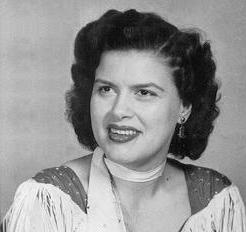
In 1962 and 1963, Patsy Cline continued her success with hits like "She's Got You," "When I Get Through with You," "So Wrong," and "Leavin' on Your Mind." She toured extensively and headlined shows more frequently. Tragically, in March 1963, Cline lost her life in a plane crash alongside country performers Cowboy Copas, Hawkshaw Hawkins, and manager Randy Hughes, during a flight from Kansas City, Kansas, back to Nashville.
Since her untimely death, Patsy Cline has been recognized as one of the most celebrated and influential performers of the 20th century. Her music has left a lasting impact on various styles and genres, making her a trailblazer for women in country music. In 1973, she achieved a significant milestone as the first female performer to be inducted into the Country Music Hall of Fame. Even after her passing, Cline's legacy continued to thrive in the 1980s, with portrayals in major motion pictures and the release of documentaries and stage shows. Her recordings received critical acclaim, and her greatest hits album sold over 10 million copies in 2005. In 2011, Cline's childhood home was restored and transformed into a museum for fans and visitors to explore.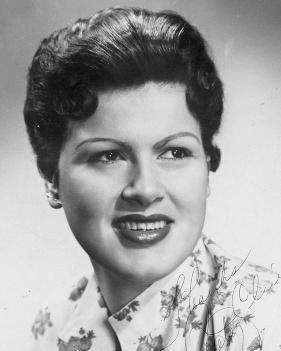
Born on September 8, 1932, in Winchester, Virginia, Virginia Patterson Hensley was the daughter of Hilda Virginia and Samuel Lawrence Hensley. At the time of Cline's birth, her mother, Hilda, was only 16 years old. Samuel Hensley had a previous marriage, resulting in two half-siblings for Cline, who lived with a foster family due to their mother's earlier passing. After Patsy Cline, Hilda went on to have more children, including Samuel Jr. (known as John) and Sylvia Mae. In her childhood, Cline was also affectionately called "Ginny."
During her early years, Patsy Cline experienced frequent relocations with her family, living in places like Gore, Elkton, Staunton, and Norfolk in Virginia. These moves were driven by her father Samuel Hensley's pursuit of employment as a blacksmith. The family often struggled financially, and during times of financial strain, Cline took up various jobs. One notable job was at a poultry factory in Elkton, where she was tasked with plucking and cutting chickens.
The family's nomadic lifestyle continued until they eventually settled in Winchester, Virginia, on South Kent Street. Unfortunately, Cline faced additional challenges in her personal life. She later disclosed that her father had sexually abused her, a painful revelation that she shared with her friend Loretta Lynn. Cline's mother, Hilda Hensley, also later provided details of the abuse to the producers of Cline's 1985 biopic, Sweet Dreams.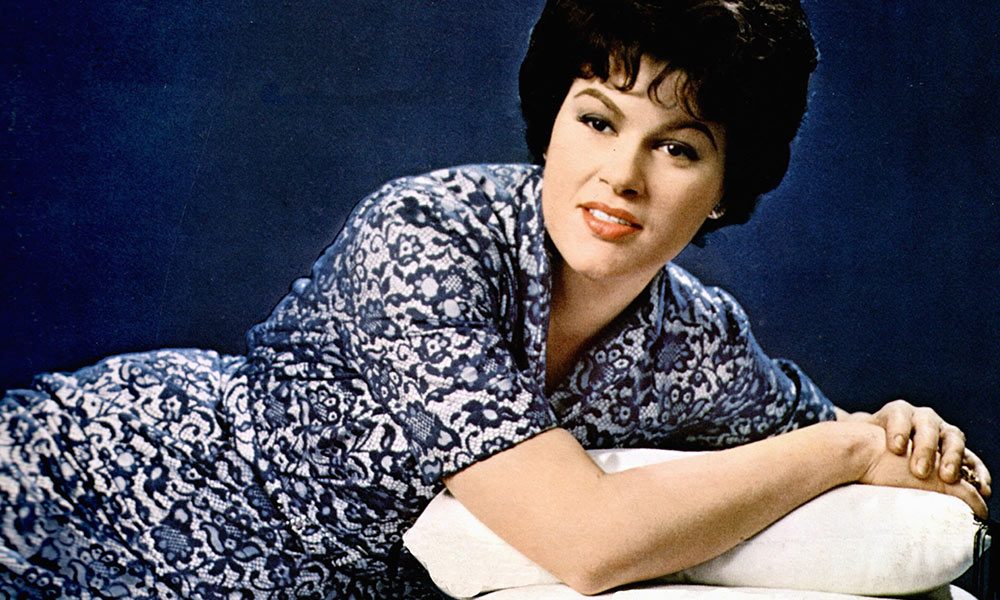
At age 13, Cline was hospitalized with a throat infection and rheumatic fever. Speaking of the incident in 1957 she said, "I developed a terrible throat infection and my heart even stopped beating. The doctor put me in an oxygen tent. You might say it was my return to the living after several days that launched me as a singer. The fever affected my throat and when I recovered I had this booming voice like Kate Smith's." It was during this time she developed an interest in singing. She started performing with her mother in the local Baptist choir. Mother and daughter also performed duets at church social events. She also taught herself how to play the piano.
With the new performing opportunities, Cline's interest in singing only grew further and at the age of 14, she told her mother that she was going to audition for the local radio station. Her first radio performances began at WINC in the Winchester area. According to WINC's radio disc jockey Joltin' Jim McCoy, Cline appeared in the station's waiting room one day and asked to audition. McCoy was impressed by her audition performance, reportedly saying, "Well, if you've got nerve enough to stand before that mic and sing over the air live, I've got nerve enough to let you." While performing on the radio, Cline also started appearing in talent contests and created a nightclub cabaret act similar to performer Helen Morgan.
Cline's parents had marital conflicts during her childhood, and by 1947, her father deserted the family. Author Ellis Nassour, in the biography Honky Tonk Angel: An Intimate Story of Patsy Cline, reported that Cline had a "beautiful relationship" with her mother. In his interviews with Hilda Hensley, he quoted Cline's mother as saying they "were more like sisters" than parent and child. Upon entering the ninth grade, Cline enrolled at John Handley High School in Winchester, Virginia. However, the family had trouble sustaining an income after her father's desertion. Therefore, Cline dropped out of high school to help support the family. She began working at Gaunt's Drug Store in the Winchester area as a clerk and soda jerk.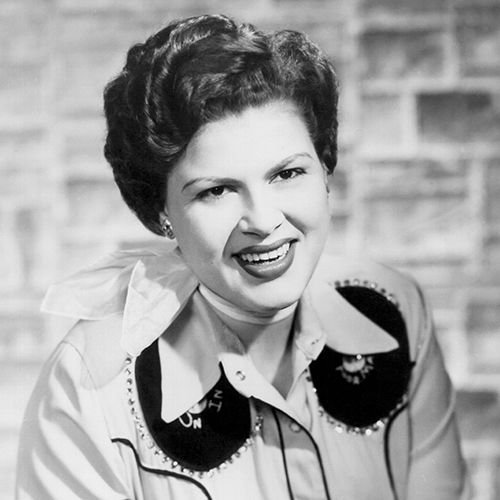
At age 15, Cline wrote a letter to the Grand Ole Opry asking for an audition. She told local photographer Ralph Grubbs about the letter, "A friend thinks I'm crazy to send it. What do you think?" Grubbs encouraged Cline to send it. Several weeks later, she received a return letter from the Opry asking for pictures and recordings. At the same time, Gospel performer Wally Fowler headlined a concert in her hometown. Cline convinced concert employees to let her backstage where she asked Fowler for an audition. Following a successful audition, Cline's family received a call asking for her to audition for the Opry. She traveled with her mother, two siblings, and a family friend on an eight-hour journey to Nashville, Tennessee. With limited finances, they drove overnight and slept in a Nashville park the following morning. Cline auditioned for Opry performer Moon Mullican the same day. The audition was well-received, and Cline expected to hear from the Opry the same day. However, she never received news, and the family returned to Virginia.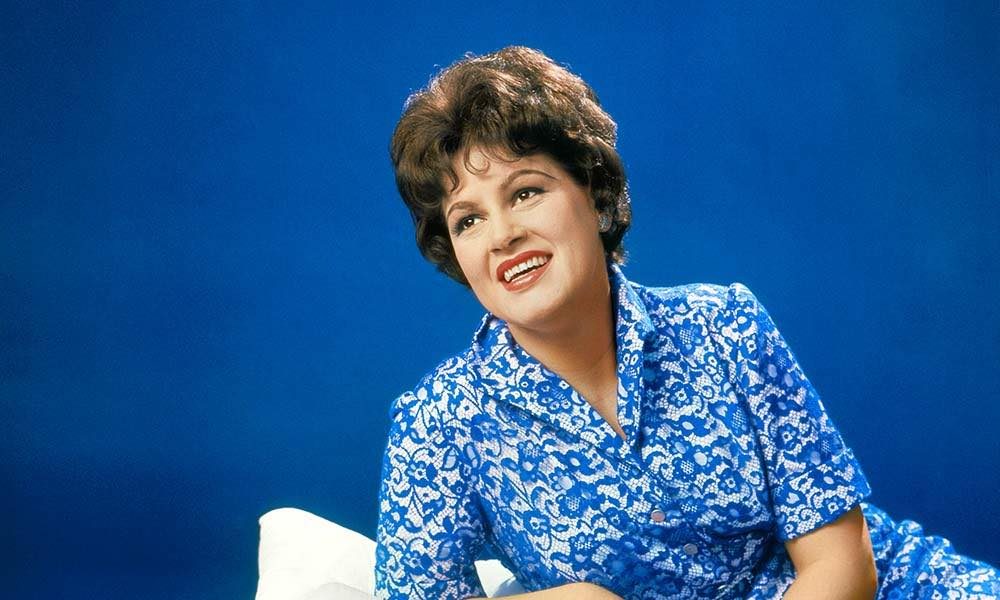
By the early 1950s, Cline continued performing around the local area. In 1952, she asked to audition for local country bandleader Bill Peer. Following her audition, she began performing regularly as a member of Bill Peer's Melody Boys and Girls. The pair's relationship turned romantic, continuing an affair for several years. Nonetheless, the pair remained married to their spouses. Peer's group played primarily at the Moose Lodge in Brunswick, Maryland where she would meet her first husband, Gerald Cline. Peer encouraged her to have a more appropriate stage name. She changed her first name from Virginia to Patsy (taken from her middle name "Patterson"). She kept her new last name, Cline. Ultimately, she became professionally known as "Patsy Cline."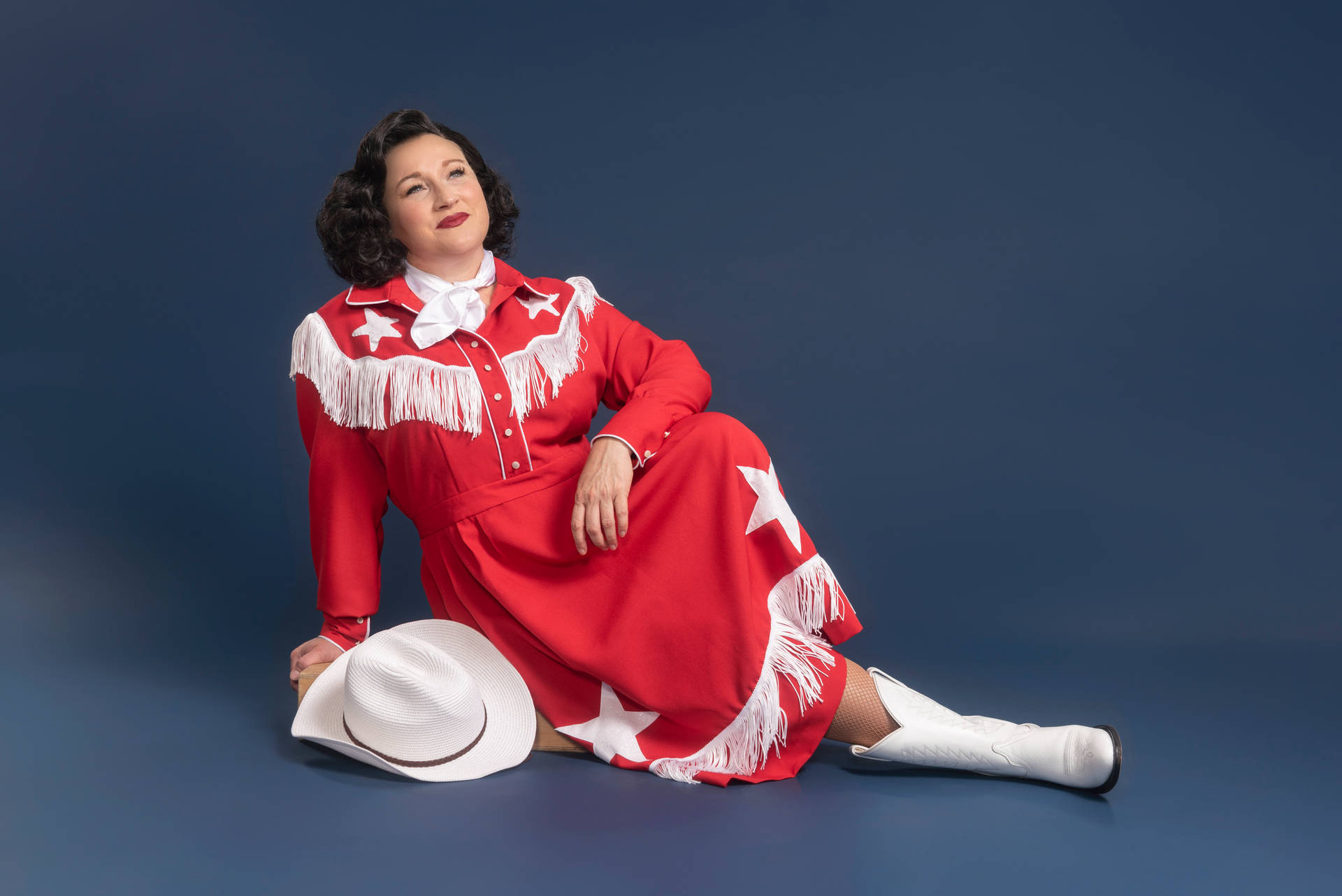
In August 1953, Cline was a contestant in a local country music contest. She won 100 dollars and the opportunity to perform as a regular on Connie B. Gay's Town and Country Time. The show included country stars Jimmy Dean, Roy Clark, George Hamilton IV, and Billy Grammer, and was filmed in Washington D.C. and Arlington County, Virginia. She was not officially added to the program's television shows until October 1955. Cline's television performances received critical acclaim. The Washington Star magazine praised her stage presence, commenting, "She creates the moods through movement of her hands and body and by the lilt of her voice, reaching way down deep in her soul to bring forth the melody. Most female country music vocalists stand motionless, sing with monotonous high-pitched nasal twang. Patsy's come up with a throaty style loaded with motion and E-motion."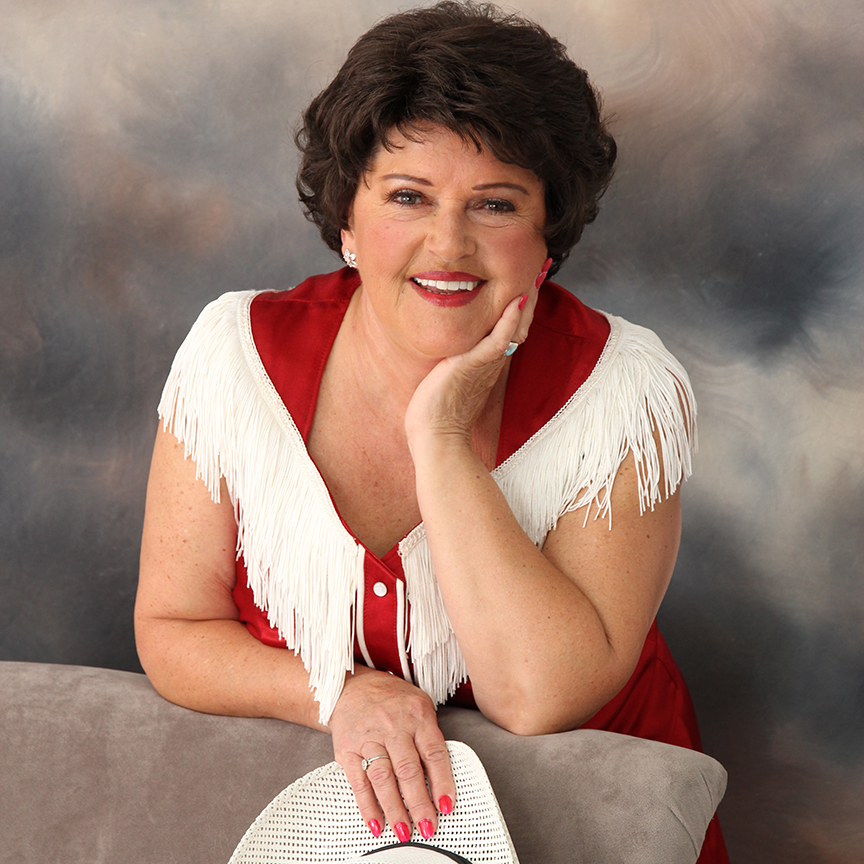
In 1954, Bill Peer created and distributed a series of demonstration tapes with Cline's voice on it. A tape was brought to the attention of Bill McCall, president of Four Star Records. On September 30, 1954, she signed a two-year recording contract with the label alongside Peer and her husband Gerald Cline. The original contract allowed Four Star to receive most of the money for the songs she recorded. Therefore, Cline received little of the royalties from the label, totaling out to 2.34 percent on her recording contract. Her first recording session took place in Nashville, Tennessee on January 5, 1955. Songs for the session were handpicked by McCall and Paul Cohen. Four Star leased the recordings to the larger Decca Records. For those reasons, Owen Bradley was chosen as the session's producer, a professional relationship that would continue into the 1960s. Her first single release was 1955's "A Church, a Courtroom, Then Goodbye". Although Cline promoted it with an appearance on the Grand Ole Opry, the song was not successful.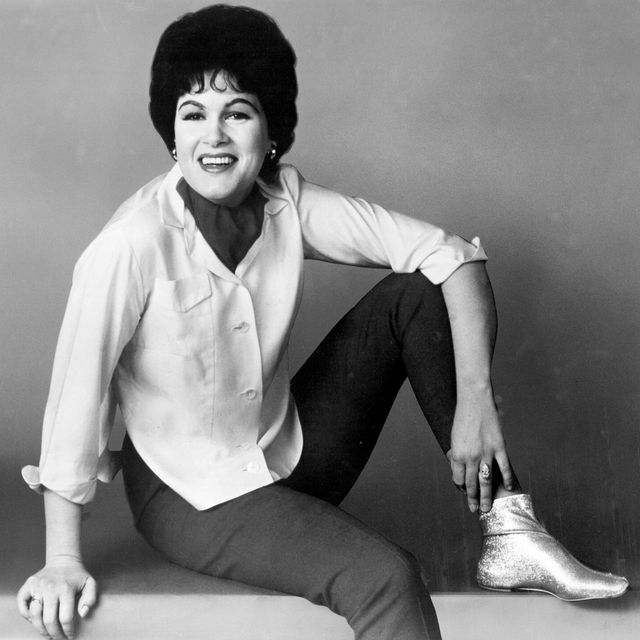
References
- Pae, Peter. "CRAZY OVER CLINE". The Washington Post. Retrieved August 15, 2019.
- ^ "About Patsy". Celebrating Patsy Cline.org. Archived from the original on August 15, 2019. Retrieved August 15, 2019.
- ^ Nassour, Ellis 1993, p. 85.
- ^ "Nashville Sound / Countrypolitan". AllMusic. Retrieved July 8, 2017.
- ^ Soslow, Robin (May 10, 2018). "Patsy Cline Museum and the wonderful women of Music City give you more reasons to be crazy over Nashville". My San Antonio.com. Retrieved August 11, 2019.
- ^ Cuenca, Melody (July 23, 2019). "'Rockabilly Heaven' mixes rock, country into legendary music experience". Greenville Journal. Retrieved July 30, 2019.
- ^ Hofstra, Warren E. (September 20, 2013). "Sweet Dreams: The World of Patsy Cline". PopMatters. Retrieved July 8, 2017.
- ^ CBS News (February 18, 2009). "Remembering Patsy Cline" Archived October 21, 2013, at the Wayback Machine. Retrieved January 16, 2012.
- ^ Browne, Ray; Browne, Pat (eds.) (2001). The Guide to United States Popular Culture. Popular Press. p. 180. ISBN 978-0-87972-821-2.














































